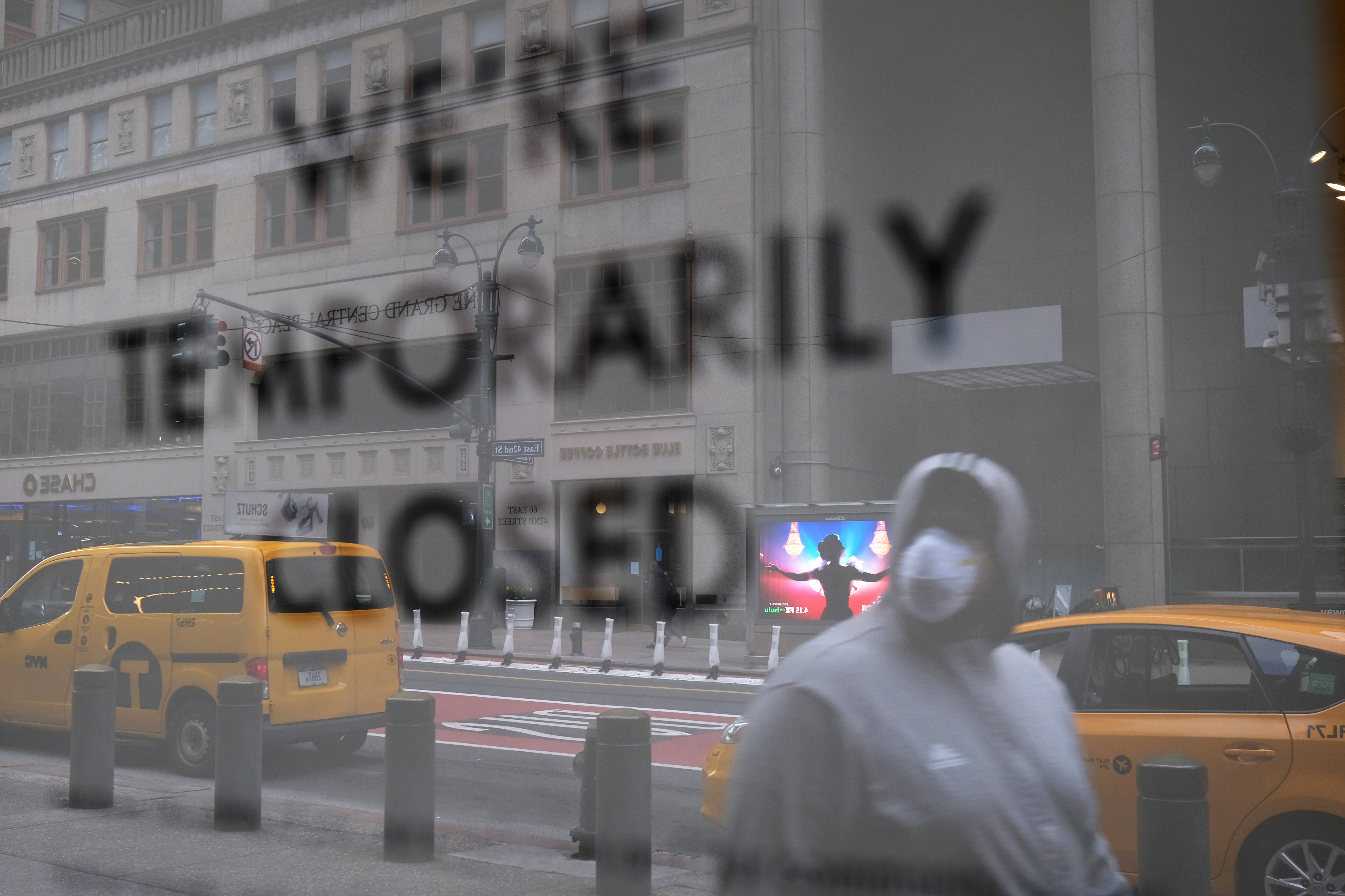The steep price of denial
Why the world now shuns Americans


A free daily email with the biggest news stories of the day – and the best features from TheWeek.com
You are now subscribed
Your newsletter sign-up was successful
This is the editor's letter in the current issue of The Week magazine.
When Europe reopens its borders to tourists on July 1, visitors from three backward, high-infection countries will reportedly not be welcome: Russia, Brazil, and the U.S. This is how far our country has fallen. We have by far the most coronavirus cases in the world, with 2.4 million confirmed infections and more than 120,000 deaths (a quarter of the global total), and may surpass 200,000 deaths by summer's end. Worst of all, a white flag of surrender has been raised in the White House and in many state capitols: If we can't beat this virus, let's pretend it's gone. So people began returning too soon to indoor restaurants, bars, and stores, without masks or distancing, and new hot spots of infection were ignited. Texas has record numbers of new cases and hospitalizations, and there are also alarming spikes in Florida, Arizona, South Carolina, and California. Many of the newly infected are people in their 20s and 30s, who are less likely to die. But they have parents, grandparents, teachers, and bosses. As Dr. Ashish Jha, director of the Harvard Global Health Institute, told Politico: "Just because it starts with young people, doesn't mean it will stay with young people."
Remember Italy in March — the overwhelmed hospitals, the older patients left to die in hallways, the empty towns and cities? Last Saturday, when the U.S. reported nearly 32,000 new COVID-19 cases, Italy reported 264. Spain, France, and most of the rest of Europe also have the virus largely contained. In the U.S., confused citizens are getting conflicting and politicized messages from Washington, state capitals, and health officials. Many people have just thrown up their hands, unsure what's safe and what's not. Meanwhile, the virus is gaining traction in the South and West, making a terrible second wave in the fall much more likely. "I would rather spend this summer in Rome with my family than in Phoenix," Jha said. But for Americans, Rome is not an option. We are now global pariahs.
The Week
Escape your echo chamber. Get the facts behind the news, plus analysis from multiple perspectives.

Sign up for The Week's Free Newsletters
From our morning news briefing to a weekly Good News Newsletter, get the best of The Week delivered directly to your inbox.
From our morning news briefing to a weekly Good News Newsletter, get the best of The Week delivered directly to your inbox.
This article was first published in the latest issue of The Week magazine. If you want to read more like it, you can try six risk-free issues of the magazine here.
A free daily email with the biggest news stories of the day – and the best features from TheWeek.com
William Falk is editor-in-chief of The Week, and has held that role since the magazine's first issue in 2001. He has previously been a reporter, columnist, and editor at the Gannett Westchester Newspapers and at Newsday, where he was part of two reporting teams that won Pulitzer Prizes.
-
 What to know before filing your own taxes for the first time
What to know before filing your own taxes for the first timethe explainer Tackle this financial milestone with confidence
-
 The biggest box office flops of the 21st century
The biggest box office flops of the 21st centuryin depth Unnecessary remakes and turgid, expensive CGI-fests highlight this list of these most notorious box-office losers
-
 The 10 most infamous abductions in modern history
The 10 most infamous abductions in modern historyin depth The taking of Savannah Guthrie’s mother, Nancy, is the latest in a long string of high-profile kidnappings
-
 Epstein files topple law CEO, roil UK government
Epstein files topple law CEO, roil UK governmentSpeed Read Peter Mandelson, Britain’s former ambassador to the US, is caught up in the scandal
-
 Iran and US prepare to meet after skirmishes
Iran and US prepare to meet after skirmishesSpeed Read The incident comes amid heightened tensions in the Middle East
-
 Israel retrieves final hostage’s body from Gaza
Israel retrieves final hostage’s body from GazaSpeed Read The 24-year-old police officer was killed during the initial Hamas attack
-
 China’s Xi targets top general in growing purge
China’s Xi targets top general in growing purgeSpeed Read Zhang Youxia is being investigated over ‘grave violations’ of the law
-
 Panama and Canada are negotiating over a crucial copper mine
Panama and Canada are negotiating over a crucial copper mineIn the Spotlight Panama is set to make a final decision on the mine this summer
-
 Why Greenland’s natural resources are nearly impossible to mine
Why Greenland’s natural resources are nearly impossible to mineThe Explainer The country’s natural landscape makes the task extremely difficult
-
 Iran cuts internet as protests escalate
Iran cuts internet as protests escalateSpeed Reada Government buildings across the country have been set on fire
-
 US nabs ‘shadow’ tanker claimed by Russia
US nabs ‘shadow’ tanker claimed by RussiaSpeed Read The ship was one of two vessels seized by the US military
